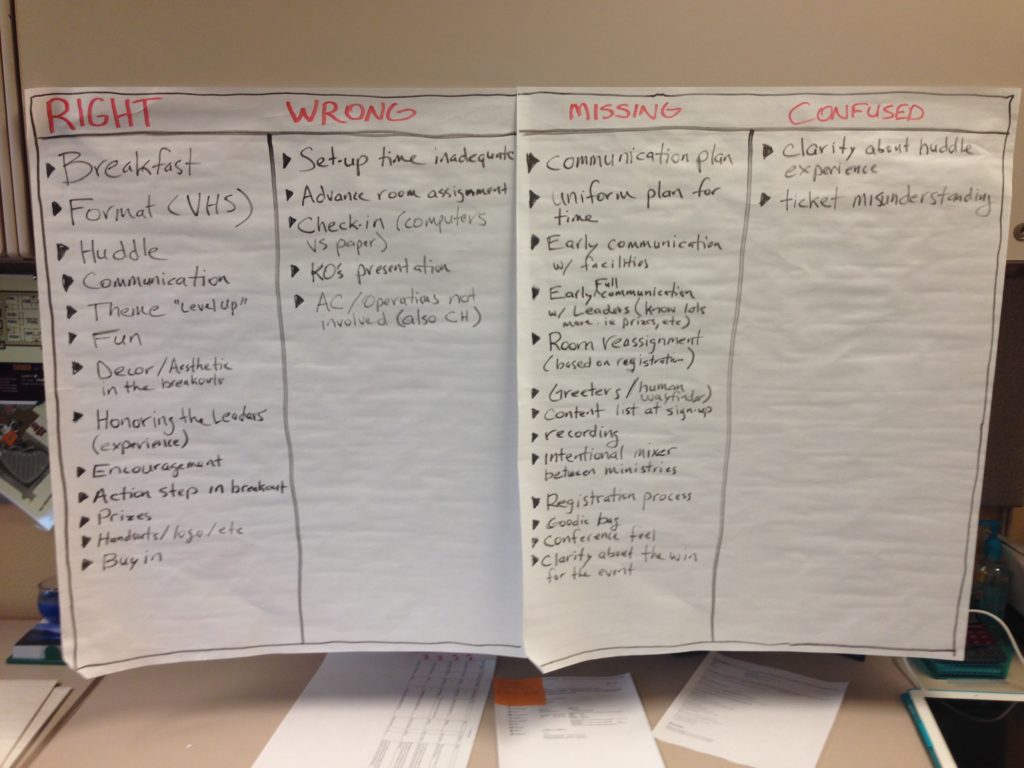The Most Recent Things I’ve Learned…AGAIN
 The Most Recent Things I’ve Learned…AGAIN
The Most Recent Things I’ve Learned…AGAIN
“Those who fail to learn from history are doomed to repeat it.” Whether this famous one-liner was first said by Winston Churchill, Edmond Burke or George Santayana may be up for debate, but the truth of the statement isn’t.
One of the most important things we can do is learn everything we can from what just happened.
When we take the time to carefully scrutinize the event or program just concluded, including the process of conception and development, the sequence of promotion that led up to it, and the follow-up elements and next steps that flowed from it…we win every time.
When we pull out our learnings from previous efforts and use them to better prepare for the next time, our event or program is much more likely to succeed (provided we didn’t learn that the event or program shouldn’t be done again).
Those who fail to learn from history are doomed to repeat it. Winston Churchill Click To Tweet
How to evaluate an event or program
The best way I’ve discovered to evaluate an event or program (from top to bottom and beginning to end) is a tool created by Tom Paterson, the legendary business consultant. Today, Paterson’s strategic thinking and the process he developed are used everyday, around the world to help organizations get better.*
One of the tools Paterson developed is referred to as The 4 Helpful Lists. The essence of the exercise is to have a robust conversation about the following four aspects of an event or program (or ministry):
- What’s right? The aspects that were right are captured on a long list. This list is often the easiest to develop.
- What’s wrong? The aspects that were wrong are also captured on a list. Participants in the discussion are often reluctant to call out the things that didn’t work, but with encouragement will come around and contribute.
- What’s confused? Taking the time to develop this list will pay big dividends. Calling out the aspects that weren’t clear or were hard to understand or respond to will help you evaluate one of the most important pieces of any ministry program.
- What’s missing? Once your conversation gets going, you’ll begin to remember that certain aspects were missing. Capturing them on a list will help you think about improving what you are doing.
You can probably already see that distinguishing between what was wrong, confused or missing requires discernment. That there might be some aspects that would be initially placed on the “wrong” list but are later discerned to belong on the missing or confused list.
The fruit of the discussion is a detailed evaluation that can lead to a better next step, provided lessons were learned and remembered. The things that were right can be optimized. The things that were wrong can be fixed. The things that were confused can be clarified. And the things that were missing can be added.
Remember, those who fail to learn from history are doomed to repeat it.
*I am a licensed StratOp facilitator with Intentional Churches and would love to talk with you about how the process can be used at your church to double your kingdom impact again and again. Email Me to find out more about it.


